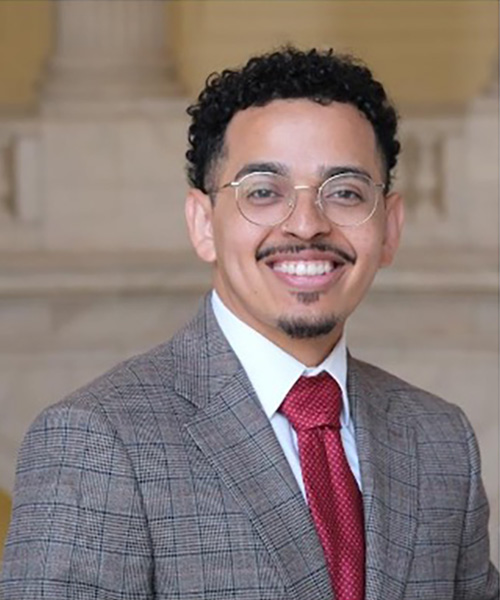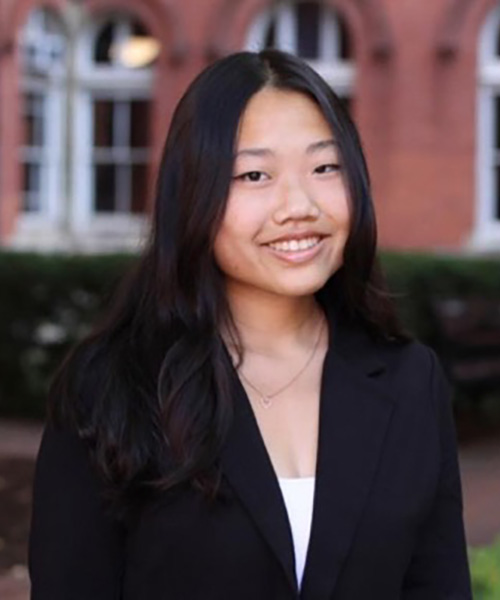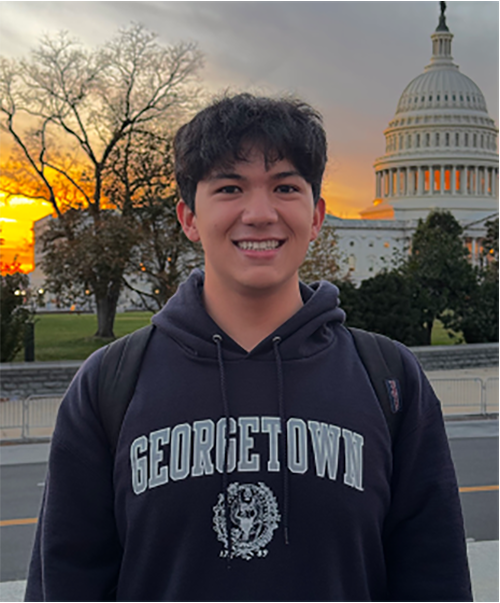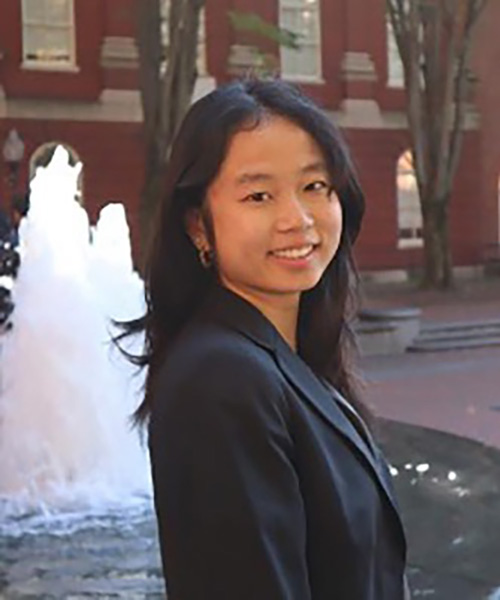
The People Beyond the Talking Points
Bennie Chang | May 31, 2025
Responding To: Georgetown Students Reflect on Student Dialogue in Beijing and Hong Kong
Luke Hughes
When asked about my experience in Beijing and Hong Kong during the U.S.-China Student Dialogue, I turn towards the bullet points and short quotes I jotted down in my pocket-sized journal that I carried with me. This little notebook, full of my observations and sentiments, witnessed my changing perceptions of the places I visited.
As I look back at my entries while writing this reflection, one quote caught my attention more so than others. On Tuesday, May 20, 2025, I wrote that Jenny, a rising second year at Tsinghua University (THU), noted that the students from the United States “now had friends in China!”. This stood in contrast to the Luke Hughes that was journaling just the night before, who commented on how he felt “paranoid, and somewhat unsettled” while driving from Beijing Capital International Airport to the hotel. I had arrived in the country, my first ever time in Asia, with warnings about the countless state-operated security cameras dotting streets and indoor spaces. I had presumed that my THU colleagues would not be at liberty to discuss Chinese politics, the level of government surveillance, or other sensitive topics. I consider my paranoia a product of how U.S.-China relations are framed in our institutions, through a competitive rather than cooperative lens.
However, by Tuesday, I had made new friends, as Jenny had said. I left the hotel for a run early that morning and noticed people going for walks in nearby parks, practicing yoga and other exercises, biking to what I assumed was school or work, and other activities that one sees in the United States. By 11:00 a.m., my climate change working group decided to take a few hours to socialize. Georgetown and Tsinghua students laughed over social media trends, bonded over love for bubble tea, related over a busy finals season, and found more similarities than differences.
If elected officials and their advisors face an impasse in U.S.-China diplomacy, put six students into a bustling university dining hall. That should do the trick. One common theme in my journal entries was how students from both countries opened up most during meals. There is a vulnerability in enjoying food and drink that facilitates enthusiastic student-to-student dialogue. I learned more about the guiding theme of this year’s conversations, “The Future of U.S-China Relations”, in between bites of chicken legs and sips of plum juice than I did during other parts of the week. Being in-person breaks the ice. We students saw eye-to-eye on how our countries can work together to regulate artificial intelligence, protect institutions of global governance, and more topics that are so pertinent to the next several decades.
I am excited to re-read pages of my journal in the coming months and years. I will certainly interact with one of my THU colleagues again, likely sooner rather than later. I will reference my notebook as proof that in-person exchanges are key to progressing U.S.-China relations. This essential diplomacy, a work in progress, can start on the student-to-student level. I am living proof of that.
Luke Hughes (SFS’27) is a student at Georgetown University studying science, technology, and international affairs.

Bennie Chang | May 31, 2025

Daniel Castro Bonilla | May 31, 2025

Isabella Stratta | May 31, 2025

Maggie Yang | May 31, 2025

Patrick Coggin | May 31, 2025

Raghav Akula | May 31, 2025

Tiffany Cowan | May 31, 2025

Zifei Zhao | May 31, 2025

Drew Zacharias | May 31, 2025